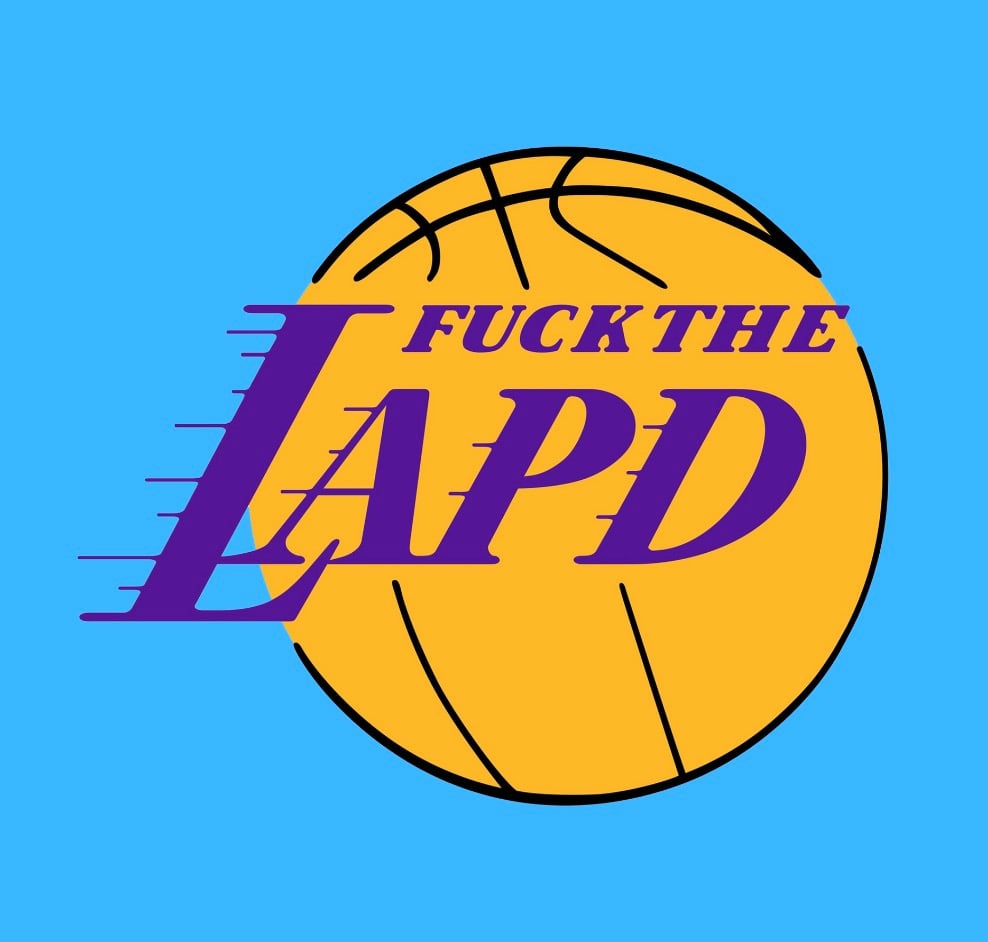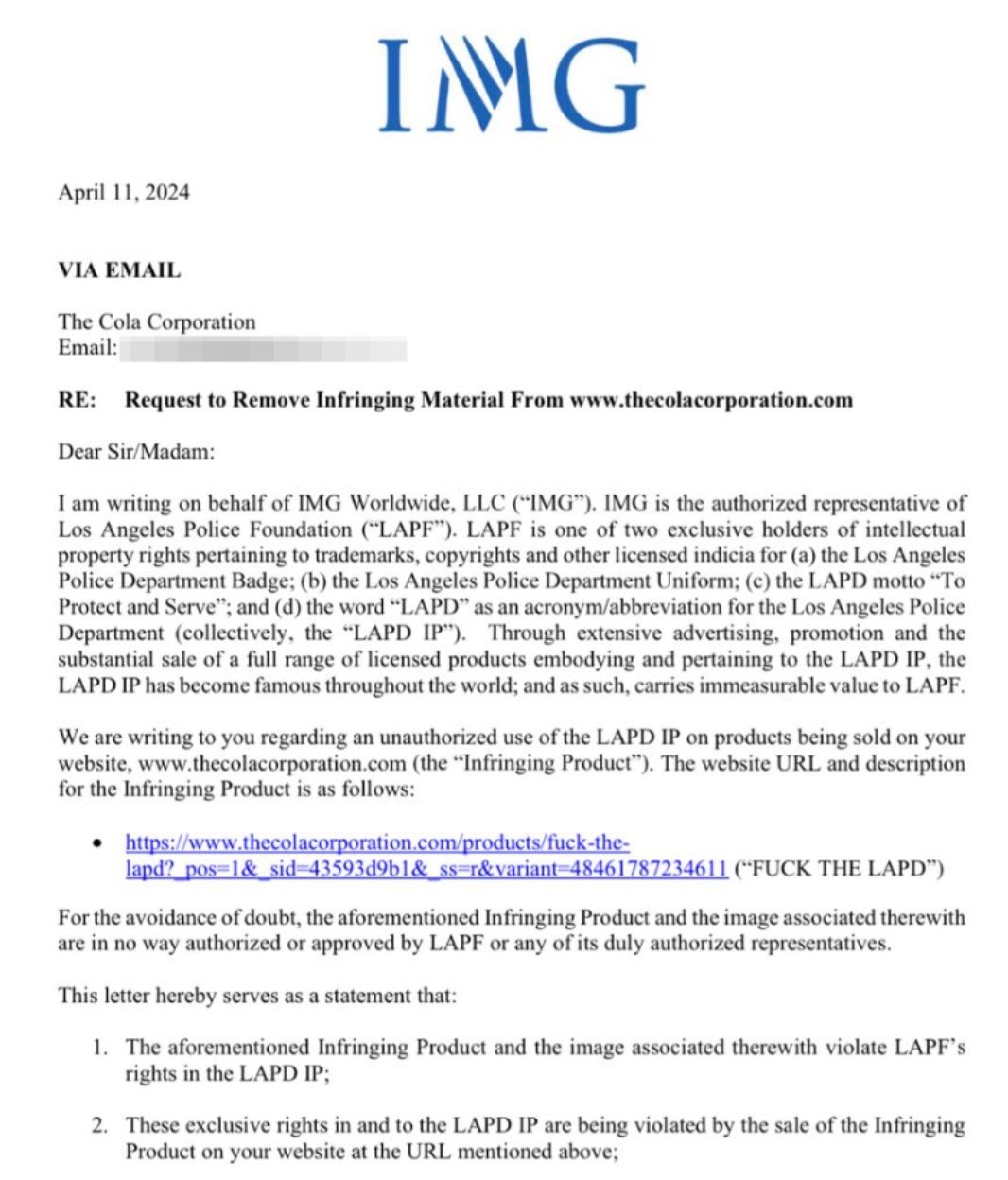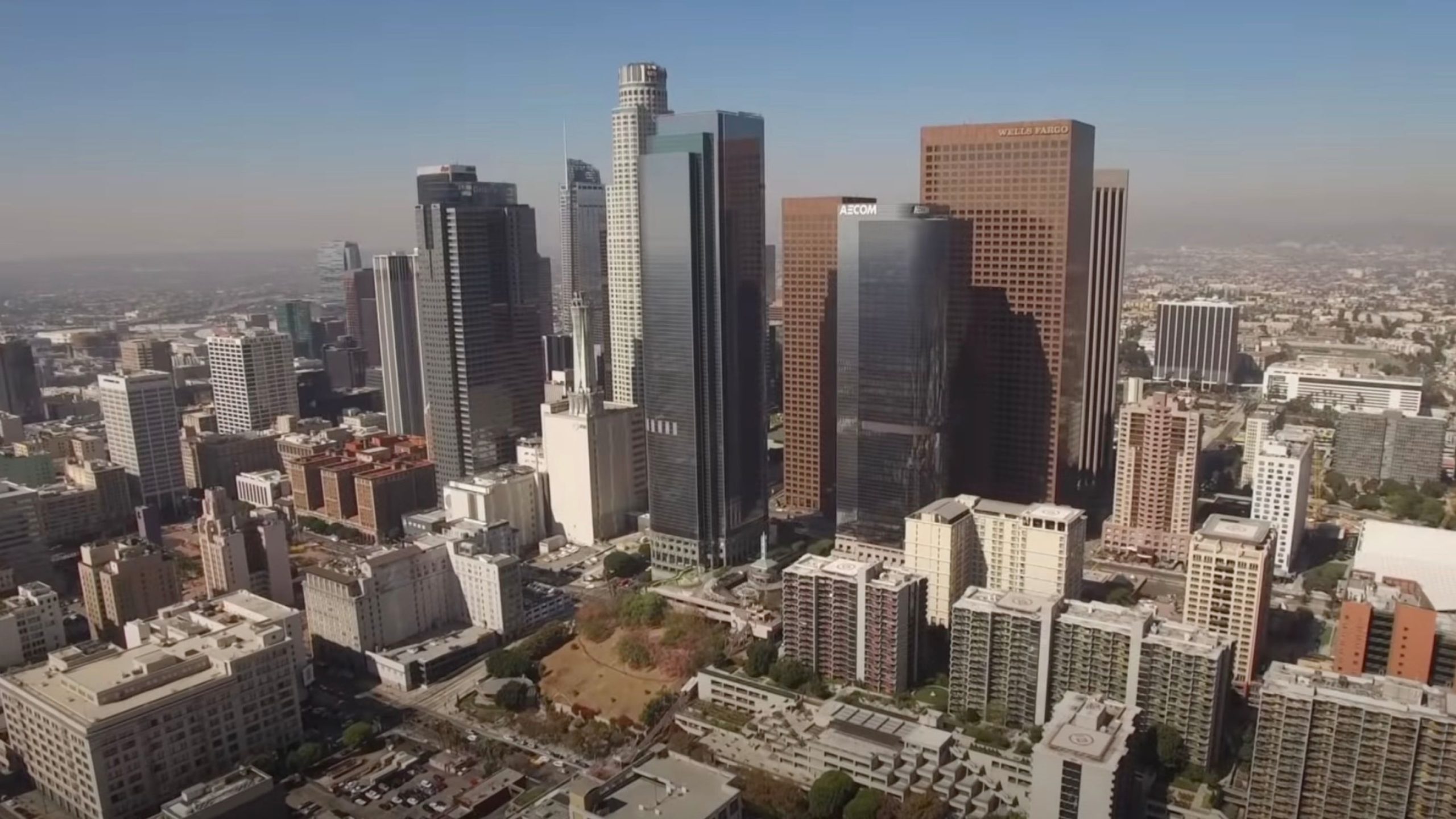A clothing company faced pressure from a police department’s private foundation. The incident revolved around a shirt boldly emblazoned with “Fuck the LAPD,” a direct critique of the Los Angeles Police Department. Legal representatives for the Los Angeles Police Foundation (LAPF) issued a threat, asserting they owned the copyright to the acronym “LAPD” and demanding the removal of the contentious merchandise. But the company, Cola, defiantly responded with a brief retort: “LOL, no.”
Cola’s controversial shirt prominently displayed the words “FUCK THE LAPD” over a basketball, evoking the Los Angeles Lakers logo.

The LAPF’s legal notice, delivered through the entertainment giant IMG Worldwide, claimed ownership of the LAPD trademark. The LAPF partially functions as the LAPD’s funding arm, responsible for acquiring high-tech surveillance gear, drones, and other cutting-edge tools for the department, 404 Media reported.

While the letter sought to reinforce the foundation’s intellectual property rights, legal experts pointed out glaring inaccuracies. The LAPF letter stated that the organization holds the intellectual property rights for various LAPD symbols and terms, including the department’s badge, and the acronym “LAPD.” However, intellectual property laws have exceptions for criticism and parody, and the simple use of “LAPD” doesn’t constitute infringement.
More critically, the LAPD is a public institution funded by taxpayers, placing most of its works in the public domain. Legal precedent shows that attempts by government agencies to exert undue control over their logos or names are likely to falter.
Copyright and trademark claims are increasingly being used as tools to stifle criticism and silence dissent. This trend is alarming, as it can significantly undermine the fundamental principles of free expression and open debate. Intellectual property laws, designed to protect creators and their works, are now being exploited by powerful entities to suppress criticism, criticism that often targets those very entities’ activities, products, or policies.
Related: How the DMCA has become one of the biggest threats to online speech
One common tactic involves leveraging the ambiguity in intellectual property laws to issue cease-and-desist letters or legal threats against individuals or organizations that express dissenting views. These threats can be effective even without solid legal grounds, as the fear of costly legal battles often compels critics to comply, resulting in a chilling effect on free speech. Critics may be forced to remove content, retract statements, or even issue public apologies to avoid legal action, regardless of the validity of the original criticism.
Legal experts and free speech advocates have raised concerns about this trend, emphasizing that intellectual property laws should not be used to silence dissent. Exceptions for criticism and parody exist within copyright and trademark frameworks, recognizing their importance in a democratic society. However, when organizations with substantial legal resources misuse these laws to intimidate and suppress criticism, it sets a dangerous precedent that undermines these protections.












